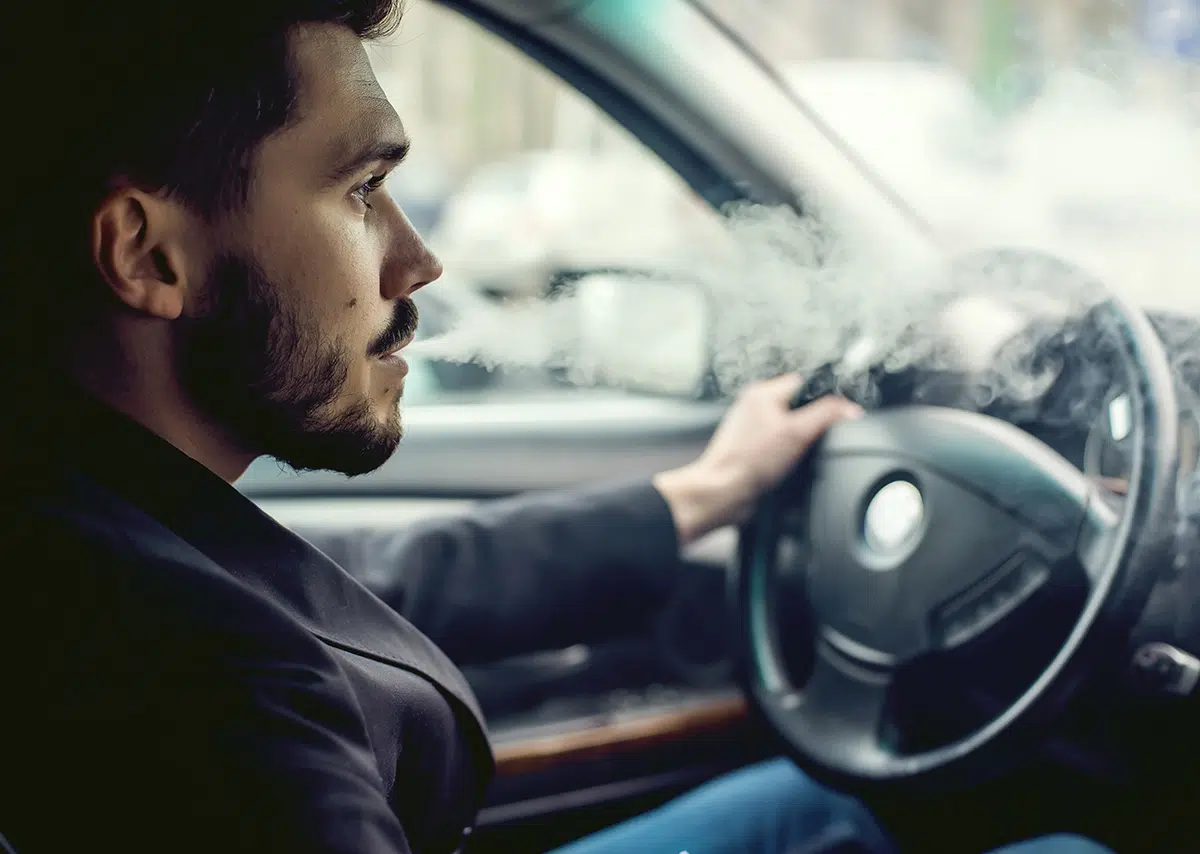Although there is much scientific debate about the overall effect that marijuana has on the senses and motor skills, there is little disagreement that marijuana and driving do not mix. Marijuana impairs judgment and reaction time significantly, making it more difficult to operate a vehicle on the road.
Numerous studies have suggested that there is a direct correlation between high concentrations of THC (tetrahydrocannabinol, the chemical responsible for marijuana’s effects) and impaired driving. Further studies have also revealed that drivers often become distracted and ‘zone out’ while driving a vehicle. This can lead to sudden collisions that could have otherwise been easily avoided under normal conditions.
Let’s take a closer look at the effects of marijuana and driving and what you can do for a substance abuse problem.
The Role of Marijuana in Car Crashes
The role of marijuana in car crashes is still unclear for several reasons, including:
- Marijuana and alcohol: When drivers are given blood-alcohol tests, marijuana often shows up in the bloodstream. While it is obvious that this combination drastically increases impairment, it is difficult to determine how much of the impairment was caused by marijuana and how much was caused by alcohol.
- Duration of marijuana in the bloodstream: A person that smokes marijuana regularly can expect marijuana to stay in their bloodstream for up to seven to ten days. Chronic smokers may keep the drug in their system for up to two weeks. Therefore, if they get in an accident and the drug is still in their bloodstream, it may be difficult to determine if marijuana is what caused the accident.
- Marijuana and young drivers: Most people who smoke marijuana regularly are in the teens or early twenties. Teenagers already face driving challenges due to their inexperience. While marijuana makes their inability to drive properly in certain situations more difficult, their inexperience may also play a large role in a car accident.
The Rise of Marijuana Potency
Now that marijuana has turned into a legalized industry, the potency of the drug has increased significantly, particularly over the last decade. For example, 30 years ago, the average TCH content was less than four percent. However, recent studies have shown that, on average, TCH levels have averaged 15 percent.
The increased potency has made marijuana far more lethal when combining marijuana and driving. Marijuana affects driving more than ever before due to the high concentration of TCH in the drug. Also, extensive marijuana use can have long-term effects on the brain, causing further impairment over time.
Weed Impairs Driving Long After the High is Gone
Ongoing studies have shown that chronic, heavy use of marijuana affects driving ability long after the initial high has gone. A person can still be affected by the drug for up to 12 hours once the high has worn off. Drivers can make critical, dangerous mistakes in situations that require quick thinking and reactions.
In other words, using marijuana slows down reaction times, leading to car accidents that can cause injury or fatality. This is consistent with endless data that has supported the assertion that cannabis is associated with poor cognitive performance.
Marijuana Addiction Treatment
A person who is addicted to marijuana can access a variety of addiction treatment therapies to end their addiction before they get into a car accident or get pulled over for driving under the influence of marijuana. Treatment for marijuana addiction may include:
- A detox center
- Outpatient rehab programs
- Individual, group, and family therapy
- Community housing
- Alumni program
- Trauma therapy program
With the right substance abuse treatment programs, a person suffering from addiction can get the help they need to overcome their addiction to marijuana.
Learn More About Marijuana and Driving at Midwest Recovery Center
Are you struggling with an addiction to marijuana? If so, contact Midwest Recovery Center. We offer a wide range of treatments for substance abuse. Learn more about marijuana and driving and end your addiction today. Call Midwest Recovery Center at [Direct] for a free consultation with a treatment specialist.


























